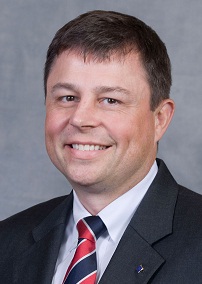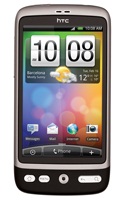Cox Touts 'Fair' Edge With Wireless Launch
The smarter way to stay on top of the multichannel video marketplace. Sign up below.
You are now subscribed
Your newsletter sign-up was successful
Cox Communications -- hoping to siphon off customers from incumbent wireless carriers -- is commercially launching its "Unbelievably Fair" mobile services Friday in Hampton Roads, Va., Omaha, Neb. and Orange County, Calif.
Cox's device lineup includes Android-enabled smartphones from Motorola, HTC and LG, and in the initial markets the operator will use Sprint Nextel's 3G wireless network in a wholesale access agreement to provide voice and Internet services.
But Cox is not positioning wireless as part of a "quad-play": "It is really about bringing mobility to the dimension of the cable service customers have today," Cox vice president of wireless Stephen Bye said.
One of the key "Unbelievably Fair" features Cox Wireless wants to use to differentiate itself is MoneyBack Minutes, which offers customers between $5 and up to $20 back for unused minutes each month, depending on their plan.
"Customers are paying for minutes they don't use," Bye said. "We are not an incumbent [in wireless] and not addicted to the overage revenue, so we're able to exploit that."

Instead of a straight price discount for existing Cox customers -- as is the convention with triple-play bundles -- the MSO is letting subs with at least two services choose one free upgrade when they add wireless. TV customers can choose the Cox Movie Pak, which includes Encore, Epix, Sundance and Vutopia; high-speed Internet customers can upgrade from Preferred to Premier; or home telephone customers can add unlimited domestic long distance calling on their Cox Digital Telephone service.
"We can deliver a more compelling and user-rich experience to customers, without having to go immediately to the price lever," said Keith Davis, Cox Wireless director of marketing.
The smarter way to stay on top of the multichannel video marketplace. Sign up below.
Cox cited an FCC survey earlier this year finding that one in six mobile users -- 30 million people -- have experienced "bill shock," or a sudden increase in a monthly bill even though they had not changed their plan.
Bye said Cox introduced the tiers to be comparable to what's available from incumbent wireless carriers to make it easy for customers to comparison shop.
Individual monthly rate plans are $39.99 for 450 minutes, $59.99 for 800 minutes, $69.99 for unlimited talk and $99.99 for unlimited talk, text and Web.
Mobile data for "starter" phones is $15 per month, while unlimited Web and messaging with advanced phones is an additional $30 per month on individual plans. The smartphone data plans are not capped. However, Cox also is selling data-only plans that are capped: the $60 per month plan has a limit of 5 Gigabytes of data, and the $40 plan has a 200 Megabyte limit.
In another feature designed to reinforce the "Unbelievably Fair" message, Cox will automatically alert customers with a free text message if their usage hits 95% of their monthly minutes or messages used. The plans also provide free mobile-to-mobile and calling between a customer's Cox Digital Telephone and Cox Wireless phone.
While Cox will charge an early-termination fee for customers who sign a two-year contract for a subsidized device and then cancel before the term is up, the ETF drops on a pro-rated basis over the two-year span. In other words, the ETF is discounted 1/24th each month. The starting ETF is equivalent to the amount of the subsidy.
Through the holidays, Cox plans to introduce some special promotions on devices, as well as inducements around family plans to sign up customers. "We get to launch once. We're going to put out some aggressive promotions as we go to market," Bye said.
The wireless service are integrated to some extent with Cox's cable TV, broadband and home phone services. The Cox Wireless phones have the ability to program the home DVR and see TV listings from their mobile device, with an Android app available for users of those devices.

Additional features include Universal Contact Manager to securely manage, backup and organize all Cox High Speed Internet and Cox Wireless contacts in one place; and Voice Mail to Text which converts voice mail messages to text and delivers them to the Cox Wireless device as a text message.
Currently, though, mobile video is not part of Cox Wireless.
"Right now we are doing some testing. We are just not prepared to put anything in the initial launch," Bye said. But, he added, "It's obviously a focal point given our history in the video space."
In the three initial markets, Cox is using Sprint's 3G CDMA network to provide voice and data access. Cox had previously expected to commercially launch wireless services in those markets in the spring of 2010. "We've spent a lot of time ensuring we get that experience right," Bye said.
In some other markets, the cable company is building its own wireless towers and using spectrum that it owns.
Ahead of the wireless launch, the company converted or opened 26 stores with the new "Cox Solutions Stores" format in Hampton Roads, Va.; Omaha, Neb.; and Orange County, Calif. The stores include a Learning Lounge area where Cox "educators" host demos and show customers about the company's services.
Cox Wireless's portfolio of devices available this holiday season -- with variable availability -- include five phones based on Google's Android operating system: HTC Desire, HTC Hero, HTC Wildfire, Motorola Milestone and LG Axis. It will offer two devices that run Qualcomm's BREW applications platform, the Samsung Messager Touch and Samsung Profile.
Asked whether Cox will get the iPhone, Bye said, "To my knowledge it's still exclusive to AT&T." He added, "If you look at our lineup, we're very comfortable with our lineup and competitive positioning in the market."
On a separate track, Cox has been testing LTE, the 4G higher-speed wireless technology, in San Diego and Arizona for about a year. The 3G CDMA networks Cox has built are designed "to have a very simple and smooth upgrade to 4G going forward," Bye said.
The Cox Wireless launch represents a return to the space for the operator, which had been part of the Pivot joint venture with Comcast, Time Warner Cable and Bright House Networks. Pivot shut down in March 2008, after less than two years in operation.
Cox built a completely new back-office operations support system based on Oracle software, which is integrated with the MSO's Convergys billing platform and other systems. "This was built from the engine room out," Bye said.
By contrast, with Pivot, Cox had to rely on Sprint's back-end systems with only very simple integration points back to Cox's own OSS/BSS.
Cox has trained all its front-line customer service reps and sales staff on the wireless packages and devices. If customers have more technical, device-specific questions, those will be escalated to a higher-level support team specially trained on wireless.
More information about Cox Wireless, with details on devices and rate plans, is available at www.unbelievablyfairwireless.com or www.cox.com/wirelesslaunch.
